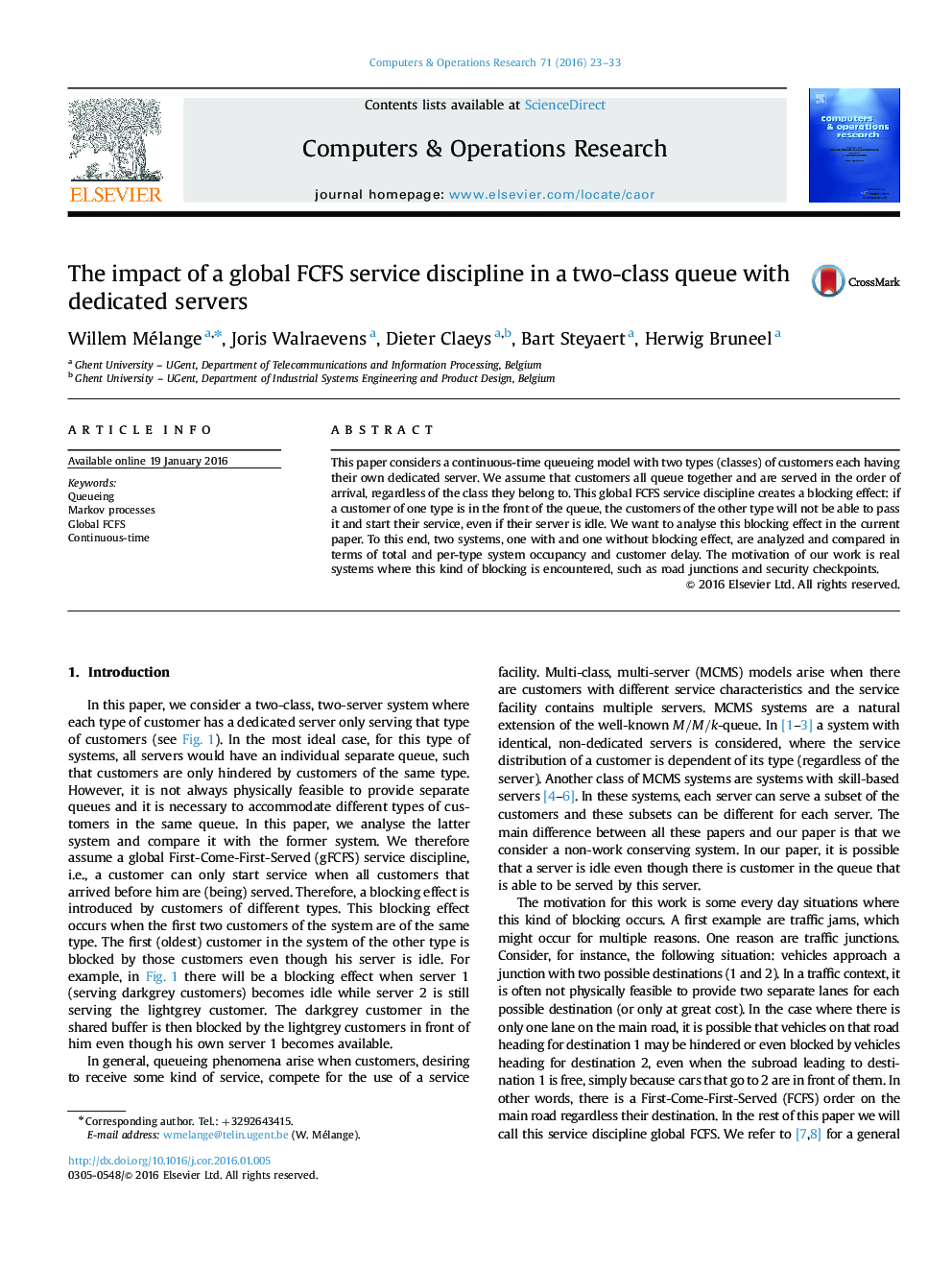| Article ID | Journal | Published Year | Pages | File Type |
|---|---|---|---|---|
| 472837 | Computers & Operations Research | 2016 | 11 Pages |
•We studied a two-class, continuous-time queue with class-dedicated servers.•Comparison between a system with a global and per-class FCFS service discipline.•Distributions of the total and per-type system occupancies and customer delays.•Uncovered the negative impact of a global FCFS service discipline.•Well balanced system performs best when handling a high load.
This paper considers a continuous-time queueing model with two types (classes) of customers each having their own dedicated server. We assume that customers all queue together and are served in the order of arrival, regardless of the class they belong to. This global FCFS service discipline creates a blocking effect: if a customer of one type is in the front of the queue, the customers of the other type will not be able to pass it and start their service, even if their server is idle. We want to analyse this blocking effect in the current paper. To this end, two systems, one with and one without blocking effect, are analyzed and compared in terms of total and per-type system occupancy and customer delay. The motivation of our work is real systems where this kind of blocking is encountered, such as road junctions and security checkpoints.
